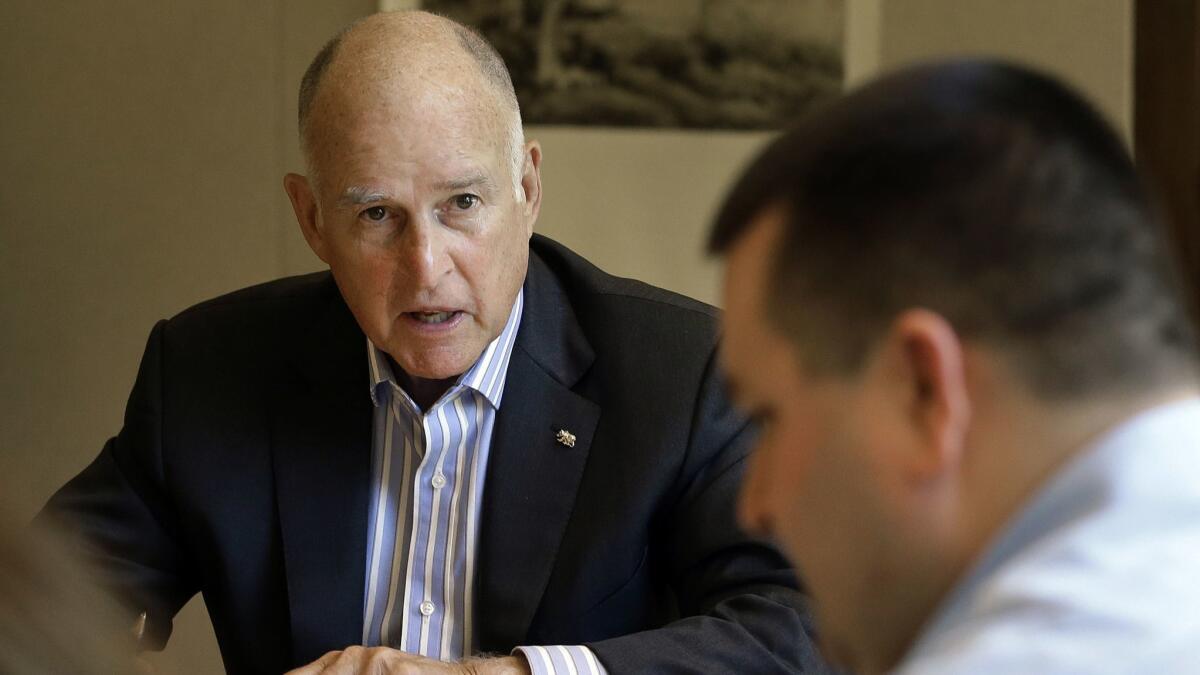Column: Once California’s governor vetoes a bill, lawmakers almost never challenge the decision

An old Sacramento adage uses baseball imagery to explain the power of California’s chief executive at the end of the legislative process: “The governor bats last.”
But that maxim is technically wrong. A governor’s veto of a bill or a budget item does not have to be the final word. It can be overridden by a supermajority vote in each house of the Legislature — a constitutional provision often overlooked and rarely invoked. Its use can have a profound impact.
That was certainly the case over a contentious eight-month period in 1979 and 1980 during Gov. Jerry Brown’s second term.
“Having been overridden by the Legislature four times in the last eight months — a historic string of defeats — the governor and his veto are about as awesome to legislators and lobbyists these days as a popgun,” reported The Times on March 24, 1980. Lawmakers and interest groups saw Brown, then on the verge of his second presidential campaign, as uninterested in the job. In 1981 and 1982, he changed course and vetoed fewer bills than any governor in modern California history — his reluctance to reject legislation continues to this day.
Coverage of California politics »
Only the Depression-era Gov. James Rolph was rebuked more, suffering 11 veto overrides on a single day in 1933 during a fight with the Legislature over economic proposals. Seven of the last 11 governors never had a veto challenged.
And as the state’s politics have become more contentious, the veto has oddly become that much more sacrosanct. Thirty-eight years have passed since Brown’s season of discontent. A 2017 book by Alex Vassar, a California State Library historian, concluded that a vote to override is “seen as a significant insult to the governor and major disruption to the balance of power relationship between the three branches.”
So significant, it seems, that even broad bipartisan support for a bill isn’t enough to trigger action by the Legislature. In 2015, Brown refused to allow terminally ill Californians to use experimental drugs — a bill passed by a 76-2 vote of the Assembly and by 40 to 0 in the Senate. Brown’s vetoes have elicited promises by lawmakers to start fresh, but not to question his judgment.
In most cases, the political math doesn’t favor a veto override. Prior to Democrats winning a supermajority of seats in both the Senate and the Assembly in 2012, almost eight decades had passed since any party held such legislative power. That meant that majority Democrats needed help from Republicans to thumb their noses at a governor, nearly impossible given that most 20th century California governors were Republicans.
Even in the era of Democratic dominance, enlisting a legislative supermajority is no easy task. A sizable group of business-aligned Democrats in the Assembly don’t always agree with the party’s liberal leaders. And in the Senate, the party lost its supermajority this year after the recall of former Orange County Sen. Josh Newman.
Brown will leave office in January without a repeat of his past veto overrides. And so the question becomes whether the next governor will strike similar fear in the hearts of legislators. One key component of the relationship may be longevity. No matter who wins between Democratic Lt. Gov. Gavin Newsom and Republican John Cox, the voter-approved change to term limits in 2012 means lawmakers will either have vastly more experience in the Capitol or are expecting to serve long after the next governor is out of office.
In other words, it’s possible that a shift in the balance of power is on the way. A governor could be challenged — and history made — by the Legislature ignoring that powerful last swing of the bat and taking the governing game into extra innings.
Follow @johnmyers on Twitter, sign up for our daily Essential Politics newsletter and listen to the weekly California Politics Podcast
More to Read
Get the L.A. Times Politics newsletter
Deeply reported insights into legislation, politics and policy from Sacramento, Washington and beyond. In your inbox three times per week.
You may occasionally receive promotional content from the Los Angeles Times.











